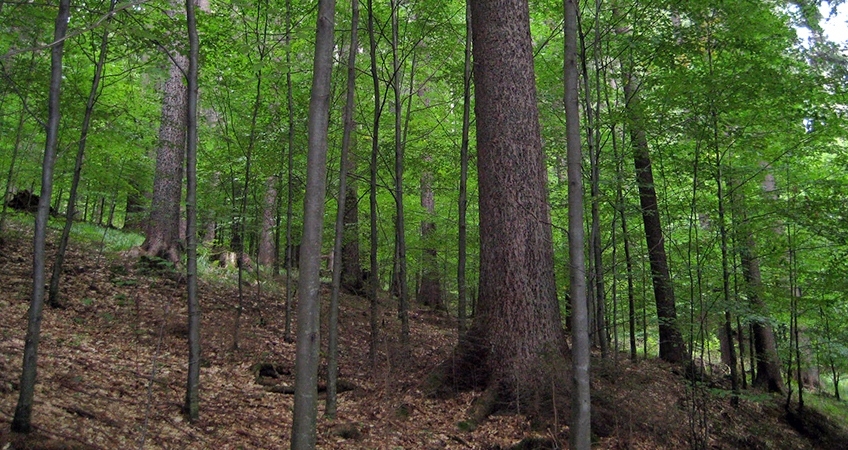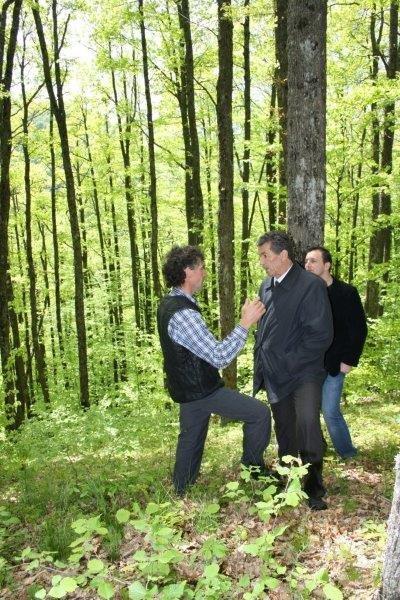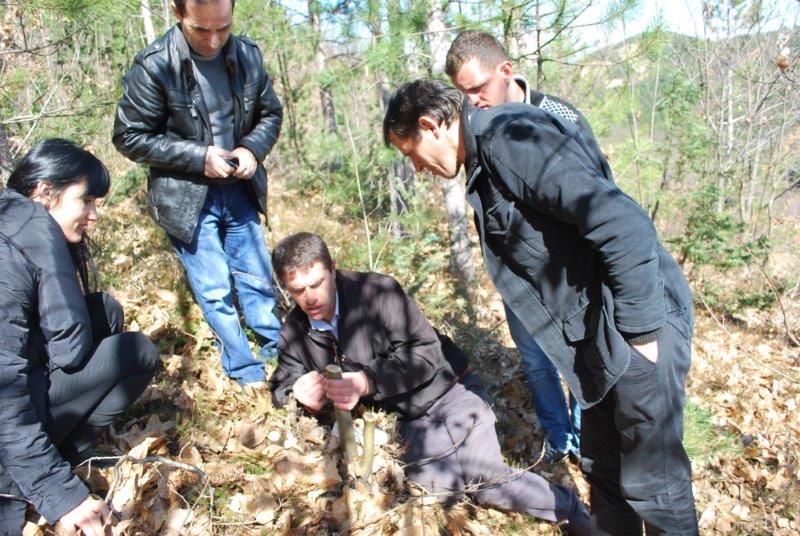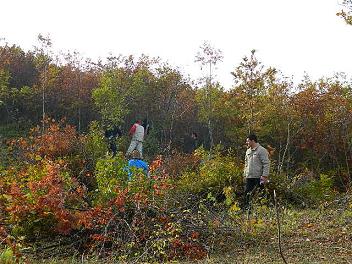Past
Private and Decentralized Forestry

The Project "Support to Private and Decentralized Forestry in Kosovo and its Region" has been implemented from January 2009 to March 2014. The implementation started by SNV Netherland Development Organization which was continued in 2012 by CNVP through the legal demerger. The project is financial supported by Sida.
The project included the following components:
- Support sustainable private and decentralized forestry in Kosovo
- Strengthening regional networking on private and decentralized forestry in Kosovo, Albania and Macedonia
- Support Sustainable Alpine Development in the Peja region of Kosovo
The overall goal of the project is: Sustainable managed private forest and decentralized forest provide proper products and services to citizens and society and thus improve the socio-economic well being of Kosovo.
Private forestry development

At the start of the project only a small association with members from one municipality existed in Kosovo. The project supported this association to become a country wide network of private forest owners and their families. There are now 16 associations at municipal level with over 3500 members and a national level umbrella organisation the National Association of Private Forest Owners in Kosovo (NAPFO).
The organisation has developed through the project activities good relationships with the associations in Macedonia and Albania. During the project a regional network organisation was established, called REFORD (Regional Centre for Forestry and Rural Development). This network has become now the regional organisation representing family forest with members from Albania, Kosovo, Macedonia, Bulgaria, Montenegro, Croatia and Bosnia-Herzegovina.
Private forests were hardly acknowledged and had very limited representation. NAPFO and its structure is accepted as a forestry stakeholder and private forestry is increasingly receiving attention. The rural development programs are gradually including specific forestry measures directed to rural communities. Adjustments are made in the legal frameworks allowing better sustainable forest management.
Sustainable forest management is addressed by the project in supporting private forest owners in making small forest management plans directed at their multiple objectives. Application of farmer forest practices are introduced and supported with more species, layers and functions forest management.
The associations at regional level have focused a lot on representation and lobbying and advocacy. A start is made with focusing on service provision to their members, family forests. The provision of information and awareness continues. Vocational training for forestry does not exist in the Balkan, the associations are the only ones providing specific extension training to farmers. The project helped with the development and provision of vocational training on e.g. farmer forest management, wood standards, safety use of motor chain saws or forest fire prevention. A start is made with economic service provision to members on forest management, exploitation and marketing.

Decentralized Forest management
 In Kosovo about 60% of all forests are public forests in State ownership. Through decentralization competences on forest management are delegated to municipalities in Kosovo regarding protection and exploitation. Illegal logging remains an issues in Kosovo and its region. Lack of proper planning and leaving many areas without any active forest management is increasing this.
In Kosovo about 60% of all forests are public forests in State ownership. Through decentralization competences on forest management are delegated to municipalities in Kosovo regarding protection and exploitation. Illegal logging remains an issues in Kosovo and its region. Lack of proper planning and leaving many areas without any active forest management is increasing this.
The project supported the focus on forest planning. The acknowledged annual allowable cut for Kosovo changed from about 300.000 m3 to over 900.000 m3. Actual planning for the State forest remain very low. To support to overcome this the project supported Kosovo Forest Agency, the Municipalities in starting small scale coppice management of degraded low forests in Kosovo. This was done with direct involvement of local communities and bringing these forest gradually back under a system of forest management. A small start is made and the Kosovo Forest Agency is now including increasingly this kind of coppice forest management in the annual plans.
Wood biomass production and renewable energy
Firewood is the most important product from all forest in Kosovo and its region. Many people as well public building rely on firewood for heating. Sustainable forest management is therefore crucial in the provision of this renewable energy source from private, state and agro-forestry.
The project supported sustainable management practices through small scale coppice systems, pre-commercial thinning practices or farmer forest with a specific objective for the production of wood biomass. Besides the regular firewood there is a great potential to other wood biomass products such as woodchips, briquettes or pellets. The project in cooperation with the association of private forests owners supported the introduction of the use of woodchips for heating. An innovative heating system, the first of its kind was installed at a primary school in Peja region, Kosovo. The school is using now woodchips locally produced by the farmers for heating of the school.
Focus of the project
The project of Sida-CNVP for development of private forestry and decentralized forestry was a multi-stakeholder project focused on capacity building. The project supported the strengthening of the capacities of the partners. As much as possible the associations were engaged and supported in the provision of services and implementation of activities to the communities. A participatory approach was used throughout the project.
Gender was integrated in the project. Forestry remains a male dominated sector, but families as a whole including men and women rely on the forest resources. Women have an important role in the management and use of these resources. The application of family forests provided the opportunity give better gender equity in forestry.
The program started its implementation on May 2009 and continued till March 2014.
